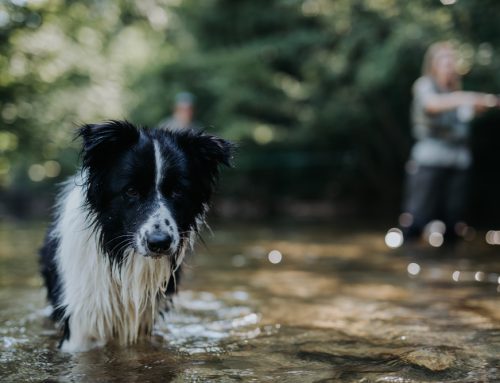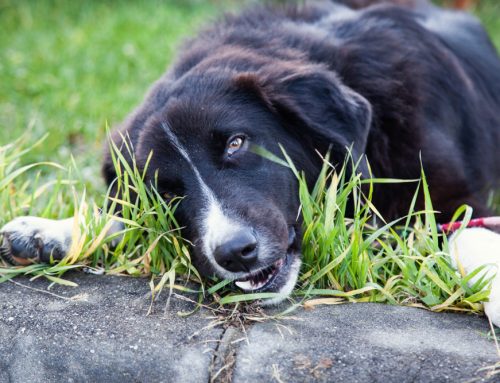Dog parks are great places to exercise your four-legged friend and maintain their socialization skills. However, you must take certain precautions to help keep your pooch safe during these visits. Our Roosevelt Animal Hospital team wants you and your pet to enjoy your time outdoors, and we offer tips to teach you how to keep your pooch safe when playing at a dog park.
#1: Keep your dog’s vaccinations up-to-date
Before going to a dog park, ensure your furry pal is up-to-date on their vaccinations. Immunization helps prevent your dog from contracting and transmitting serious diseases that can lead to significant health consequences. Our team can devise an appropriate vaccination schedule for your four-legged friend depending on your pet’s lifestyle and disease risk. Vaccines commonly recommended for pets who frequent dog parks include:
- Rabies
- Distemper, hepatitis, parvovirus, parainfluenza (DHPP)
- Bordetella
- Leptospirosis
#2: Ensure your dog is protected from parasites
Your pet is especially susceptible to contracting parasites at a dog park. Ensure your dog receives year-round parasite protection from the following pests:
- Heartworms — Mosquitoes transmit heartworms, which can cause significant damage to your dog’s heart and lungs.
- Fleas — Your pet may interact with a dog who has fleas while playing at a dog park, and these parasites can easily infest your furry pal.
- Ticks — Ticks quest in grassy areas to find their next host, and these parasites can transmit Lyme disease, Rocky Mountain spotted fever, anaplasmosis, and other diseases.
- Intestinal parasites — While at a dog park, your four-legged friend can easily contract intestinal parasites such as hookworms, whipworms, roundworms, Giardia, and coccidiosis.
#3: Schedule a wellness examination for your dog
Pets commonly hide illness and pain, and you want your furry pal to be as healthy as possible when playing with other dogs. Diagnostics performed during a routine wellness examination help ensure your dog is in tip-top shape. During your dog’s examination, our Roosevelt Animal Hospital team will perform these diagnostic screenings:
- Blood work — A complete blood count (CBC) and biochemistry profile evaluates your dog’s overall health, indicating issues such as anemia, electrolyte imbalances, kidney dysfunction, and liver disease.
- Urinalysis — A urinalysis provides valuable information about your pet’s hydration status and kidney health.
- Fecal — A fecal check is important to ensure your dog is parasite-free before going to a dog park.
#4: Avoid crowds at the dog park
Dog parks are typically busiest on Saturdays and late afternoons on weekdays. Go early on weekday mornings, midday, or late in the evening to avoid crowds.
#5: Teach your dog basic commands
A dog park is no place for an untrained pooch. Before you take your furry pal to a dog park, ensure they know and respond to basic commands such as sit, stay, come, and leave it.
#6: Ensure your dog has your current contact information
Your dog should be properly identified so they can be safely reunited with you if they become lost. To help ensure authorities can reach you if they find your missing pet, our Roosevelt Animal Hospital team recommends you provide your dog with the following:
- Microchip — Microchipping your dog provides permanent identification that can’t be lost or stolen. Ensure you keep your contact information updated in the microchip registry, so authorities who find your pet can contact you.
- ID tags — Although they have been microchipped, your dog should wear a collar and ID tags that have your current contact information. Ensure the tags are legible and firmly attached to your dog’s collar.
#7: Bring water and a portable bowl for your dog
Dogs can’t sweat and must rely on less efficient cooling methods, such as panting, which may not be sufficient on a hot, humid day. As a result, dogs have a high risk for developing heatstroke, a potentially life-threatening condition. When venturing out, always take water and a portable bowl so you can offer your dog a drink at regular intervals. By doing this, your pet does not have to rely on a communal dog park water bowl, which can carry numerous diseases and parasites.
#8: Pay attention to your dog’s body language
While at the dog park, pay close attention to your pooch’s body language and that of dogs in close proximity. To prevent your pet from having an altercation with another dog, immediately remove them from a situation if they exhibit aggressive body language. Stress signs indicating a brewing confrontation include:
- Growling, whining, or sharp, loud barking
- Tail tucking
- Flattening the ears against the head
- Showing the whites of their eyes
- Lip licking or excessive panting
- Yawning repeatedly
- Pacing
#9: Know how to stop a dog fight

If your dog gets in a fight, never get between the two animals to attempt putting an end to the dispute. Doing so can lead to serious injury. To end an altercations between dogs, follow these tips:
- Remain calm — Yelling at the dogs or the other dog’s owner only escalates the problem. Remain calm and clear-headed.
- Use water — Pour water on the dogs’ heads to try to stop the fight.
- Make a loud noise — Use trash can lids or an air horn to make a loud noise to startle the dogs, and distract them from the fight.
- Throw a blanket over your dog — Throw a blanket over your dog to break their focus momentarily and put a stop to the fight.
- Avoid violence — Never kick or punch dogs involved in a fight as this may cause one of the animals to turn on you.
Once the dogs are separated, leash your pooch and move them away from the other pet. Check your dog for injuries, and contact our team immediately if your pooch has sustained an injury. Dog bites, no matter how minor they appear, can lead to serious health complications, and a veterinary professional should always examine a wound.
If your pet needs a fecal check before going to a dog park, contact our Roosevelt Animal Hospital team, so we can ensure your furry pal is ready for a fun and safe adventure.





















Leave A Comment